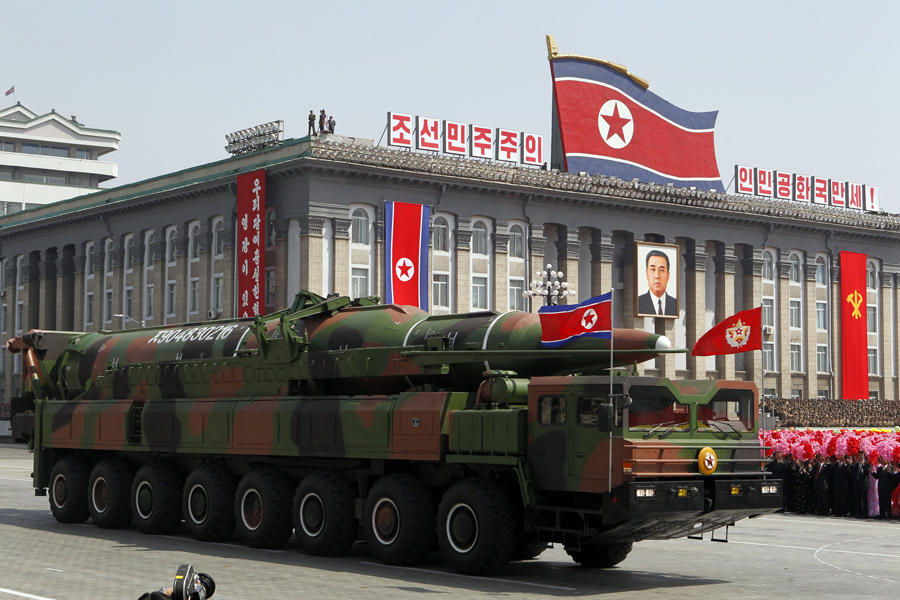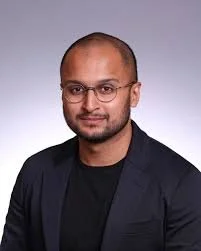United Nations Security Council: North Korea Nuclearization, 2002
Approximate Committee Size: 15 double delegations
Since the Korean Peninsula was divided in the aftermath of WWII, North Korea has found itself under the dictatorial rule of the Kim family, which aligned itself with the global rise of communism in opposition to the US led rules based international order. These factors isolated North Korea, and even after the fall of the Soviet Union that isolation has continued. Diplomatic relations were somewhat reopened after North Korea and the United States negotiated the “Agreed Framework,” under which North Korea agreed to freeze its plutonium production in exchange for fuel oil, economic cooperation, and the construction of two modern light-water nuclear power plants.
In 2002, tensions regarding North Korea began to grow once more - US President George Bush called the DPRK a member of the “Axis of Evil,” and the international community had more broadly begun to suspect North Korea is restarting its nuclear program, in violation of the Agreed Framework. This, along with provocative action from the Kim regime, has resulted in renewed UNSC conversations regarding international security and how to respond to North Korea.
Additionally, North Korea is on the tail end of a major famine that crippled the nation from 1994-1998. With renewed conversations on North Korea more generally, there is also a renewed interest in addressing the human rights abuses occurring in the DPRK, including famine and economic suffering, limited freedoms like movement and speech, access to healthcare, and women’s rights.
CHAIR: Eilat Herman
Crisis Manager: Kevin Piraino
ISSUES TO CONSIDER
The Breakdown of the Agreed Framework
Human Rights and Humanitarian Aid
Balancing Security and Sovereignty
LEARNING OBJECTIVES
Understand the geopolitical dynamics that have shaped North Korea’s isolation and the collapse of diplomatic efforts like the Agreed Framework.
Analyze the international community’s security concerns surrounding North Korea’s nuclear ambitions and potential policy responses.
Explore the intersection of humanitarian issues and international diplomacy, including how famine, human rights abuses, and economic suffering influence global engagement with authoritarian regimes.
About the Chair
Eilat Herman is a member of Georgetown College of Arts and Sciences in the class of 2026, majoring in Government and double minoring in linguistics and yapping. Eilat has competed in and staffed Model UN since high school, has had the honor of serving on the secretariat of both NAIMUN and its sister conference for college delegates, NCSC, and currently serves as the Chief Human Resources Officer (CHRO…pronounced churro) of the board of the Georgetown International Relations Association. As a result, her friends make fun of her for the number of acronyms she uses to describe her weekends. Outside of Model UN, Eilat serves as the Captain of Georgetown’s Moot Court team, writes a baseball column for Georgetown’s school newspaper, laughs at people for being slow at the NYT Mini, and drags her friends to procure sweet treats. Being from Montclair, New Jersey—a state towards which she will accept no criticism—Eilat is an avid New York Yankees fan. Finally, Eilat greatly enjoys taking the opportunity to make fun of this committee’s Crisis Manager, Kevin Piraino, and will not admit to being friends with him unless she is under duress. Eilat is thrilled to serve as your Chair for the UNSC, and is looking forward to welcoming you all to the Hilton in February!
About the Crisis Manager
Kevin Piraino is a member of the Walsh School of Foreign Service’s class of 2026, majoring in International Politics and minoring in Korean. Kevin is from Long Island, New York, and no, he does not have a Long Island accent. He is a proud member of GUMUN, Georgetown’s collegiate model UN team, and has served on the staff of a lot of NAIMUNs and a lot of NCSCs (NAIMUN’s sister collegiate conference), which he will not bore you with the details of. Notably, he was the Secretary-General of NCSC LII and is the current CEO of the Georgetown International Relations Association, the organization which runs NAIMUN as well as Georgetown’s other model UN programming. Outside of MUN, Kevin is a member of Georgetown University Club Fencing, where he fences saber and sometimes even wins! In his free time, he is a massive board game nerd (feel free to ask about favorite games), a musician, and he loves playing D&D. Kevin cannot wait to CM the United Nations Security Council, even if it means he has to deal with Eilat all weekend (this is Kevin and Eilat’s third year working together if you couldn’t tell, and no he will not admit she is his friend), and he looks forward to meeting all the delegates!
Committee Speaker
Ankit Panda is the Stanton Senior Fellow in the Nuclear Policy Program at the Carnegie Endowment for International Peace. His research interests include nuclear strategy, escalation, missiles and missile defense, space security, and U.S. alliances. He is the author of The New Nuclear Age: At the Precipice of Armageddon (Polity, 2025), Indo-Pacific Missile Arsenals: Avoiding Spirals and Mitigating Risks (Carnegie, 2023), and Kim Jong Un and the Bomb: Survival and Deterrence in North Korea (Hurst/Oxford, 2020). Panda is co-editor of New Approaches to Verifying and Monitoring North Korea’s Nuclear Arsenal (Carnegie, 2021).
Panda has consulted for the United Nations in New York and Geneva, and his analysis has been sought by U.S. Strategic Command, Space Command, and Indo-Pacific Command. Panda is among the most highly cited experts worldwide on North Korean nuclear capabilities. He has testified on matters related to South Korea and Japan before the congressionally chartered U.S.-China Economic and Security Review Commission. Panda has also testified before the U.S. Senate Subcommittee on Strategic Forces. Before joining Carnegie, Panda was an adjunct senior fellow at the Federation of American Scientists and a journalist covering international security.
Panda is a frequent expert commentator in print and broadcast media around the world on nuclear policy and defense matters. His work has appeared in or been featured by the New York Times, the New Yorker, the Economist, the Washington Post, Foreign Affairs, Foreign Policy, the Bulletin of the Atomic Scientists, the Atlantic, the New Republic, the South China Morning Post, Politico, and the National Interest. Panda has also published in scholarly journals, including Survival, the Washington Quarterly, and India Review, and has contributed to the IISS Asia-Pacific Regional Security Assessment and Strategic Survey. He is editor-at-large at the Diplomat, where he hosts the Asia Geopolitics podcast, and a contributing editor at War on the Rocks, where he hosts Thinking the Unthinkable With Ankit Panda, a podcast on nuclear matters.




